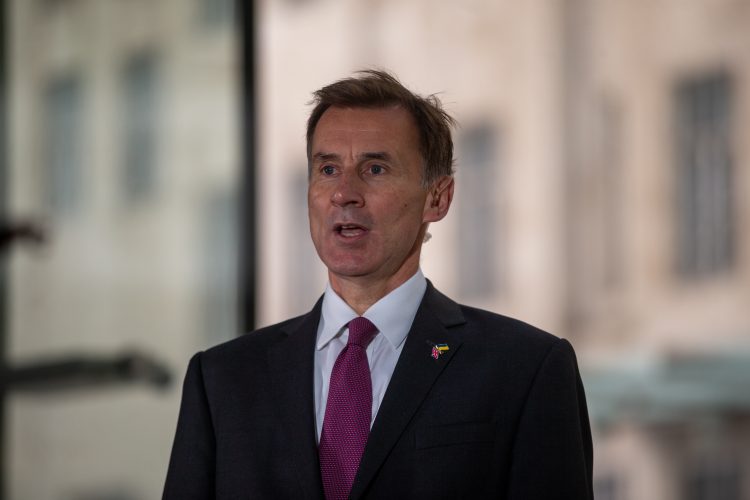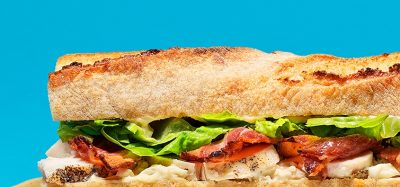Spring Budget: Alcohol duty freeze and strengthening support
- Like
- Digg
- Del
- Tumblr
- VKontakte
- Buffer
- Love This
- Odnoklassniki
- Meneame
- Blogger
- Amazon
- Yahoo Mail
- Gmail
- AOL
- Newsvine
- HackerNews
- Evernote
- MySpace
- Mail.ru
- Viadeo
- Line
- Comments
- Yummly
- SMS
- Viber
- Telegram
- Subscribe
- Skype
- Facebook Messenger
- Kakao
- LiveJournal
- Yammer
- Edgar
- Fintel
- Mix
- Instapaper
- Copy Link
Posted: 16 March 2023 | Grace Galler | No comments yet
The Chancellor of the Exchequer has announced the UK Spring Budget for 2023 but how will this affect the food industry?


Speaking on behalf of the UK Government, Jeremy Hunt, Chancellor of the Exchequer, revealed the UK’s Spring Budget on 15 March 2023.
Separating the key focuses into four pillars, Hunt cited enterprise, employment, education and “everywhere” (spreading growth across all parts of the UK) as areas on development. But what does this mean for the food industry?
Alcohol freezing
In his speech, Hunt said that in December 2022 he extended the alcohol duty freeze until 1 August 2023.
However during the Spring Budget announcement Hunt revealed from 1 August 2023 the duty on draught products in pubs will be “up to 11p lower than the duty in supermarkets”. This is something Hunt labelled as “a differential” that the UK Government will commit to maintaining “as part of a new Brexit pubs guarantee”.
Hunt claimed that this decision was “not possible when we were in the EU and significantly increase the generosity of Draught Relief”.
Summarising the decision in a sentence, Hunt stated “British ale may be warm, but the duty on a pint is frozen”.
In addition, the Chancellor explained that the charge will now also apply to every pub in Northern Ireland.
Responding to the Budget announcement, Emma McClarkin Chief Executive of the British Beer and Pub Association (BBPA) said: “This Budget was a make or break moment for pubs and brewers who have been running out of road for too long, and whilst the Chancellor’s efforts to support our pubs and breweries are welcome, we look forward to seeing how the “Brexit Pubs Guarantee” will deliver for our sector.”
Stating that the cut to draught duty as part of the alcohol duty reform is “positive”, McClarkin explained that the BBPA hopes it will “result in a boost for our pubs this summer”.
However, she added: “The fact is, our industry will be facing an overall tax hike not a reduction come August.” Predicting that duty on non-draught beer will rise, McClarkin said that the measures introduced in the Spring Budget “won’t rebalance the catastrophic impact soaring inflation and unfair energy contracts are having on both pubs and the breweries that supply them”.
Support for consumers
With inflation in mind, during his speech Hunt turned his attention to supporting Brits when it comes to high energy costs.
Recognising that there is “enormous pressure on family finances”, Hunt committed to keeping the Energy Price Guarantee at £2,500 for the next three months.
Although Hunt said that this support will be in place for the next three months, he noted that there is an “expected fall in prices from July.”
“This measure will save the average family a further £160 on top of the energy support measures already announced,” claimed Hunt.
Labelling the Energy Price Guarantee as “important support” for consumers, Karen Betts, Chief Executive of the Food and Drink Federation (FDF) said: “From a food and drink business point of view, it’s good to see the announcement of full expensing.
What will the UK Government’s budget mean for the food industry?
“This is a welcome boost to businesses investing in technology across our sector, and supports increased productivity.”
Hunt also announced measures to break down barriers that stop people working.
Stating that there are “seven million adults of working age who are not in work”, the Chancellor highlighted reforms to “remove the barriers that stop people who want to from working”.
In response to these efforts, Betts said: “The measures announced to encourage people back into work are timely, but with vacancies in food and drink manufacturing double the national average, our sector needs more help.”
Specifically, Betts said that in order to ensure that labour shortages aren’t a “drag on growth nor a risk to the resilience of the UK’s food and drink supply chain”, she thinks that there should be “hands-on apprenticeship support for SMEs”.
What about school meal support?
In addition, Hunt noted that there will be more support for the childcare system, whereby the Government will be increasing the funding paid to nurseries providing free childcare under the hours offer by £204 million from September 2023 to £288 million in 2024.
The Food Foundation (FF) said that this was “the right decision”, however, Anna Taylor, Executive Director of the FF, said: “There remains a big gap in the support provided by Government to protect school-age children from the consequences of hunger and poor diet.”
“Child food poverty has doubled in the last year yet calls for Government to extend the threshold for Free School Meals is falling on deaf ears.”
Seeking further change, Taylor explained that “if the Government is serious about levelling up it needs to act urgently to make sure every child in the country receives a nutritious meal at school.”
While numerous changes were announced in the 2023 Spring Budget, there has been widespread concern in the industry regarding the impact that inflation has had over the past year on the sector, suggesting there are likely to be multiple food industry hopes left unfulfilled.
Related topics
Food Security, Health & Nutrition, Recruitment & workforce, Regulation & Legislation, Research & development, retail, Supermarket, The consumer, Trade & Economy
Related organisations
British Beer and Pub Association, Food and Drink Federation, Food Foundation








